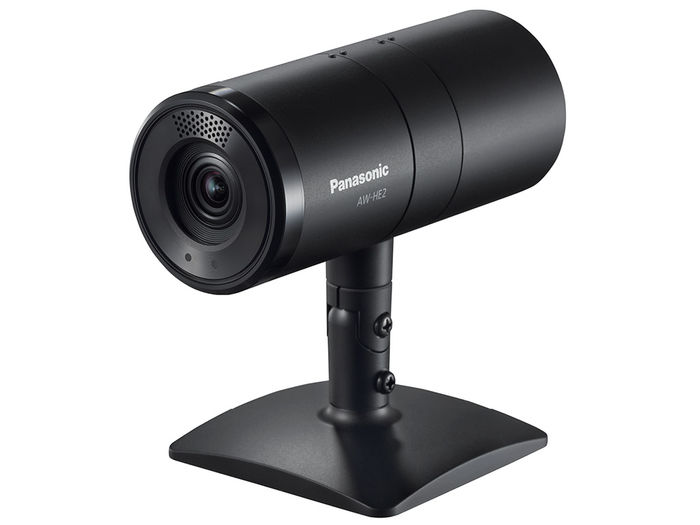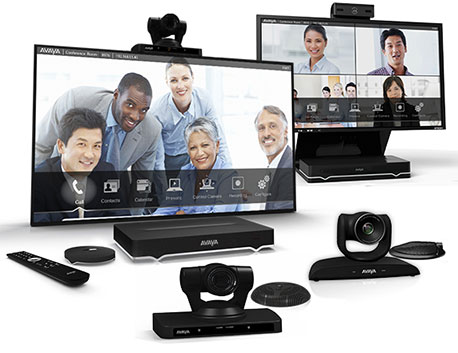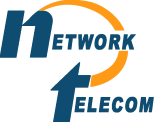Teleconferencing is quickly replacing the traditional face-to-face business meeting of yesterday. It’s important for your business to know that they have access to fast and effective teleconference support in Kitchener so that you can be assured that your staff is always able to keep connected and be well-informed. Network Telecom can make sure that your teleconferencing system is the best choice for your business and is always functioning as it should. Contact us today for all your teleconferencing support questions.
What Is Teleconferencing?
According to the Business Dictionary, Teleconferencing is “audio or audio-visual meeting between geographically separated parties linked by telecommunications networks such as telephones or Internet.”
In simpler terms, teleconferencing is holding a meeting with people located at two or more different locations using various electronic devices. Teleconferencing is interactive, which means that it provides a means of two-way communication. It is also dynamic in that it requires the users’ active participation.

Types of Teleconferences
The following are some of the types of teleconferencing available:
Audio: Audio teleconferencing is sometimes referred to as conference calling. This is a voice-only type of meeting which allows people in different locations to connect through telephone lines.
Audiographic: This type of teleconferencing uses narrowband telecommunications channels. It is a combination of audio and visual information such as graphics, alphanumerics, documents, and video pictures which supplement the voice communication.

Video: Video Teleconferencing combines voice communications and video images. It can be one-way video and two-way audio or two-way video and two-way audio. The most common set-up is to use the video teleconferencing to show the people who are participating in the meeting so that it is more like an actual face-to-face meeting. It allows the participants to see facial expressions and physical demeanors thus creating a more realistic social presence.
What Are the Advantages of Teleconferencing?
The following are some of the advantages of using teleconferencing:
Cost Savings: Teleconferencing can help your organization to save money by allowing those people who are in different geographical locations in your organization to connect with each other without having the high expenses incurred by traveling to business meetings.
Time Savings: Teleconferencing can also save you time as your employees do not need to take the extra time required to travel to a business meeting in another city or country. In addition, sites can be connected almost immediately for time-critical situations.

Larger Audience: More people are usually able to attend a teleconference as opposed to traveling to a site to hold a meeting.
Promotes Unity: Staff who are located in remote areas will feel more connected to the rest of the organization as it is easier and relatively inexpensive to connect through teleconferencing.
Teleconferencing Hardware Requirements
In order for your business to conduct a teleconference, you will need the following pieces of hardware:
1. Camera: A webcam is probably the most basic component required for video conferencing. This special type of camera can record a video signal and send it to the participants at the receiving end of a live teleconference. Investing in a good quality, high-definition (HD) conferencing camera that has special features like remote control pan, tilt, and zoom may be of great benefit to your business so that your participants can enjoy the highest resolution possible and the clearest picture even it the images are large.

Source: Panasonic
2. Codec Unit: A CODEC (coder-decoder) will take your audio and video feed, compress them, and then send them through an IP network. It will also decompress the incoming audio and video stream while maintaining a data link to your network.
3. Video Display: A video display is a monitor that will display the live video conference sessions. Some different types of teleconferencing displays include HD Plasma, LCD, and LDP Projector. To learn more about the difference between an HD Plasma and LCD display, click here. A high-definition display between 720p and 1080p is preferable if you want to have the best resolution possible. It is also a good idea to choose a larger video display for easier viewing, especially if there will be bigger groups of people participating in the teleconferences.
4. Microphones: If you have a small group, you can use analog microphone pods. For larger groups, you may want to invest in digital microphones that run on integrated software. The microphones should be able to connect instantly and cancel out any excessive
background noises.

Source: Panasonic
5. Speakers: It is important to purchase a good set of speakers that will give you a clear audio feed. If your speakers are poor, then your participants may not be able hear what is being said or may miss important details.
Teleconferencing Challenges
Although teleconferencing is a convenient and cost saving way for your staff to meet together, it is only effective as long as the technology is working properly. It is important to have a fast enough Internet speed in order to handle the requirements of the video so that the images are clear and there are no lags in transmission. You also want to make sure that your speakers and microphones are of a good quality so that everyone participating can understand what is being said.

Network Telecom for Teleconference Support in Kitchener
Network Telecom provides a full range of video conferencing hardware sales, installation, service, and technical support. We can help you with the purchase of a new video conferencing system, advising you on the type of hardware you require for your business’ individual requirements. Our knowledgeable and highly trained staff will take the time to get to know your business and its particular needs and then help you choose the right system for you. We can also provide you with the expertise to help you upgrade any existing video conferencing equipment you may already have.

Why Choose Network Telecom for Teleconference Support in Kitchener?
Network Telecom’s teleconferencing support is second to none. We offer assistance 24 hours a day, 7 days a week, 365 days a year. Whenever you have a problem and need our help, we will be there for you. As with all of the products that Network Telecom sells, we offer same day parts, labour, and technical support.
“We recently had a new Avaya IP 500 system installed at our new facility. Since then it has worked flawlessly. It is easy to use and the PC interface is very user-friendly. As a property manager, I am accustomed to bizarre excuses and missed due dates, but Network Telecom did exactly what they said they were going to do, when they said they were going to do it. Any questions that I had were answered promptly and professionally. It was a pleasure working with Network Telecom, and I would not hesitate to deal with them again.
Doug B., ST. JOSEPH’S HOSPICE
Read more testimonials


